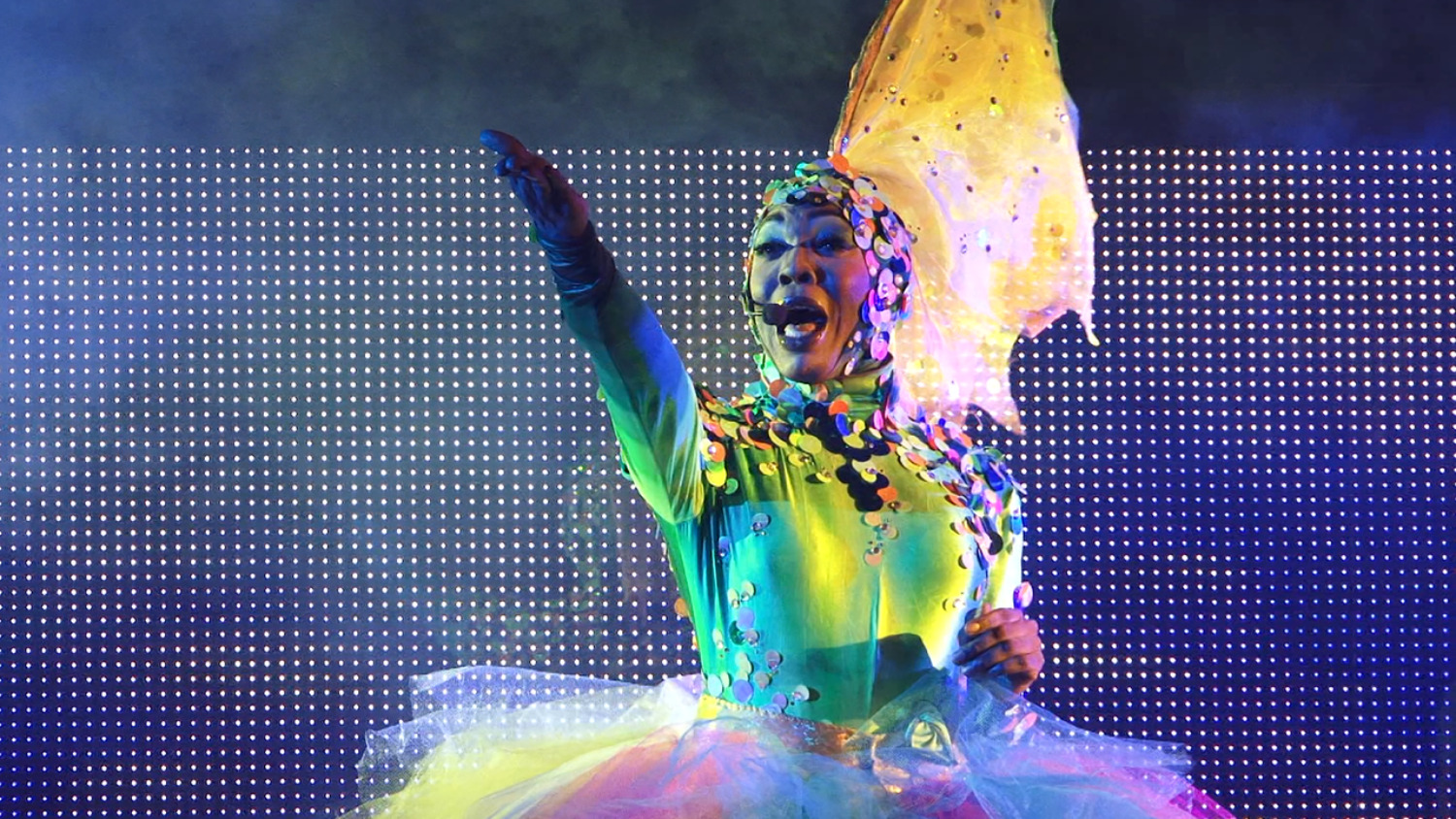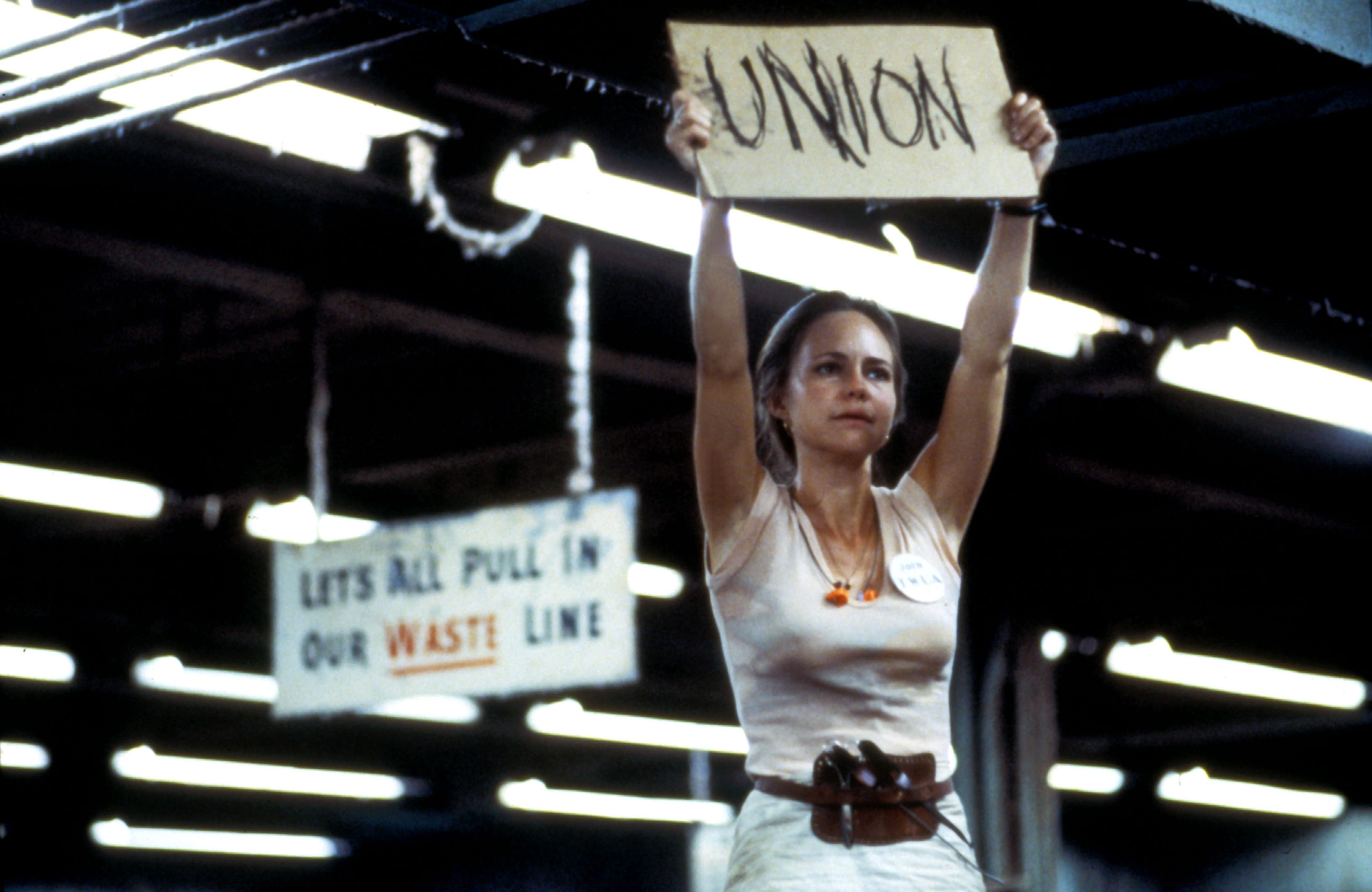Being BeBe
(USA, 90 min.)
Dir. Emily Branham
From Cameroon with a little va-va-voom, drag changed forever when BeBe Zahara Benet was crowned the first winner of RuPaul’s Drag Race. As Being BeBe explains, however, the rise of Drag Race’s first superstar didn’t share the show’s trajectory. This fun doc goes behind the scenes with BeBe to observe her preparations for the first season of Drag Race in 2009 and her determination to be a true drag superstar. Being BeBe illustrates how the mainstream success for queer artists remains a hard won battle and is doubly difficult for artists of colour.
The film is also a telling human rights portrait about the ongoing fight for LGBTQ rights worldwide. Director Emily Branham chronicles how BeBe, born Nea Marshall Kudi Ngwa, grew up in Cameroon, as all Drag Race fans know with the celebratory “Cameroooooooon!” that heralded BeBe’s entrances on the main stage and continues to follow her as she performs today. Despite the celebration of Cameroon, however, BeBe’s success is barely spoken of in her homeland. That’s because same sex relationships are still illegal in Cameroon. Officials in the West African nation continue to arrest and beat same sex couples for expressing their love. BeBe’s career in drag becomes especially empowering in the light with which Branham frames it. Benet’s celebration of Blackness and Africanness were always part of her drag—they’re just especially compelling with a feature doc treatment.
A Decade of Drag
Branham’s doc is a portrait 12 years in the making. the film features ample footage of BeBe werking the runway and serving face, face, face. The longevity gives it a somewhat awkward framing device, however, as the main interview with BeBe comes during the pandemic. Branham interviews BeBe remotely with the queen watches footage shot over the years on a tablet. She comments on the memories while answering Branham’s questions. In some cases, queries repeat in both the older footage and the new interview. However, as BeBe tells Branham that she’s out of work due to COVID, the film illustrates how even the most doggedly determined performers have struggled during the pandemic.
Being BeBe captures the queen’s drive and spirit as it recounts her early work in Minnesota. She returns to the Gay ’90s where she first performed barroom drag for tips. Recalling the fun, challenges, and cheapness of her first shows, BeBe reunites with queens who share her passion for the spotlight. However, the more queens one encounters, the more the doc reveals the X-factor within its star. BeBe just has “it.” She’s a magnetic performer as a drag queen and as a doc subject.
Bring It to the Runway
Fans looking for BeBe to spill the tea on Drag Race won’t find the star throwing any shade on RuPaul. The surprisingly brief sequence about the first season highlights BeBe’s preparedness and her willingness to go all in. Fans of Drag Race know that BeBe came to win and did just that by serving jungle fever on the runaway: high fashion, camp, and Black excellence. She later likens her dream drag show as a combination of Cirque du Soleil and Julie Taymor’s The Lion King. One could hardly find a better cross for her drag style.
The doc looks at the quick rise that BeBe enjoyed when RuPaul’s hit show skyrocketed and changed the landscape for drag. Bookings materialised and gigs multiplied, and BeBe shares how she worked a 24/7 grind. However, as Drag Race continued to rise in popularity, BeBe notes how those bookings eventually thinned out as newer queens took the stage. She invests time and money into mounting shows. Some are summer-long hits that barely break even. Others underperform despite having all the right ingredients. Being BeBe illustrates the challenge of translating one’s fifteen minutes of fame into full time work. The pace of maintaining such popularity seems impossibly exhausting.
The film randomly flies through BeBe’s return on the third season of Drag Race: All Stars. Presumably, back to give her stock a bump, BeBe’s return was a pleasant reminder why the show became a hit. However, Branham doesn’t even mention BeBe’s controversial departure from the show when the eliminated queens booted her from the final four simply because she’d previously won. It’s an odd omission, especially in a narrative about BeBe’s ups-and-downs.
Being Queer in Cameroon
Although the film doesn’t dish on how BeBe (and co-star Shangela) were done dirty on All Stars, Branham devotes time to better things. She instead looks to the place that birthed BeBe: Cameroon. Branham intercuts Benet’s story with verité-style accounts of queer people navigating their existence in Cameroon. Gay people share their experiences being beaten and living with daily fear. People risk terrible fates by coming out, and BeBe inspires the few Cameroonians who admire her. She evens Zooms with them to offer words of support.
However, the doc also considers if BeBe could be doing more as an LGBTQ advocate. BeBe prefers not to define her sexuality. She doesn’t identify as gay, straight, bi-sexual, or pansexual. She’s just BeBe and she loves whom she wants. On one hand, the film suggests that putting a word to it could extend an act of agency to gay people in persecuted countries. On the other, the doc observes how Cameroon’s repressive culture shaped BeBe. It’s quite powerful to see her come full circle, blossom, and celebrate Africa throughout the long journey that the film captures as she blends art and activism on her own terms by refusing to conform to industry standards. Like a fierce lioness, she roars.
Being BeBe screens as the opening night film at Jayu Human Rights Film Festival on Dec. 1.
Update (June 21, 2022): Being BeBe streams on OUTtv beginning June 21 and airs on June 22 at pm ET.











